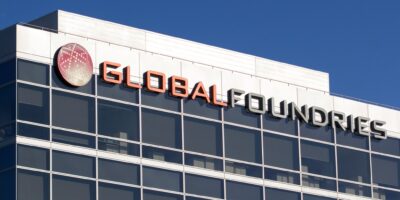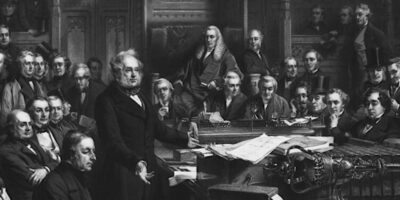A Border Adjustment Tax Is Protectionism
Free trade lets global markets provide consumers with the best products at the lowest prices. Throughout its history, AIER has consistently argued against restrictions on free trade—protectionism—and likewise we oppose the border adjustment tax proposed by President Trump. The BAT would incentivize relatively inefficient domestic production over efficient production overseas.
Many U.S. companies have moved overseas to take advantage of business-friendly environments that offer cheap labor and low taxes. The U.S. has the highest corporate tax rate among the 35 industrialized nations in the Organization for Economic Cooperation and Development and the third-highest tax rate in the world at nearly 39 percent. The rate is exceeded only in Puerto Rico and the United Arab Emirates. High corporate tax rates in the U.S. encourage domestic companies to move overseas.
By moving overseas, U.S. corporations avoid paying relatively high taxes. Under current tax policy, U.S. corporations are taxed on profits earned at home and abroad. U.S. corporations are given a credit for foreign taxes paid and sent a bill for the difference. However, it is easy for them to exempt profits earned overseas from taxation by reinvesting those profits in foreign operations. An estimated $2 trillion in corporate profits avoids taxation by staying overseas.
The Border Adjustment Tax would make offshoring less attractive. Current tax policy allows corporations to deduct the cost of inputs from overseas. Under current tax policy, input costs can be deducted regardless of where the input came from. For example, Ford produces tires in Mexico then imports the tires into the United States. The tires are mounted on an otherwise-completed car and sold to a domestic consumer. Ford can deduct the cost of imported tires from its profit.
The border adjustment tax would not allow imported inputs to be deducted from profits. This would act like a tariff on imports. Tariffs on imports result in inefficient domestic production and higher prices for the consumer.
While the BAT harms importers, it helps exporters. It would exempt from taxation profits earned from exporting goods and services. It is no surprise that major U.S. exporters are lining up in support of the BAT. General Electric, Boeing, and Oracle launched the American Made Coalition to advocate the tax. The coalition also includes other major exporters such as Pfizer, Eli Lily, and Dow Chemical. On the other side, large retailers that import most of their merchandise are lining up against the BAT. President Trump has met significant resistance from the Retail Industry Leaders Association.
The government should not pick winners and losers through tax policy. A pro-growth tax policy would let the free market decide how resources should be allocated around the world.









